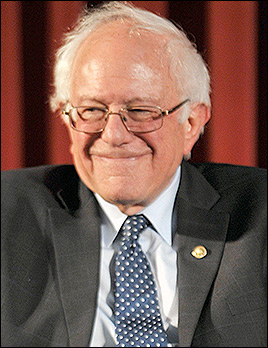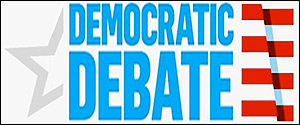
Sen. Bernie Sanders of Vermont
Oct. 3, 2019 — One of the major political campaign stories of the week is Sen. Bernie Sanders (I-VT) releasing his third quarter financial receipts, which exceeded $25.2 million for the previous 12-week period. The only other candidate to publicize his most recent financial information at this point in time is Mayor Pete Buttigieg who reports raising $19 million for the quarter.
While these numbers are high and continue to demonstrate strong, broad-based support, we still do not know the amounts that former Vice President Joe Biden and Sen. Elizabeth Warren (D-MA) will soon announce and are required to report by the Oct. 15 deadline.
Buttigieg makes the argument that this is his second consecutive outstanding quarter, which puts him at more than $51 million raised for the campaign. It appears Buttigieg has handled his money well, meaning he has adequate funding to compete in all of the early states. This is particularly true for Iowa, which hosts the first nominating on Feb. 3, and is of the utmost importance to his political survival in this national campaign.
But the Sanders campaign is our point of focus. Though his effort has been relatively quiet in the early going, the Sanders operation has concentrated upon and successfully secured their ground operation. This will prove a strong move once the actual voting begins.
In the 2016 campaign Sanders consistently under-polled. He was not predicted to do particularly well in Iowa, for example. Remember, in that contest Sanders fought Hillary Clinton to a virtual tie, forcing her to win a series of coin flips in selected precincts thus enabling her to declare a very slight statewide victory. For all intents and purposes, the Sanders performance created a virtual tie with Clinton and began to transform the contest into a one-on-one battle.
After Iowa, Sanders rolled into his New England backyard and the New Hampshire primary. Here we must recall that he garnered 60 percent of the vote against Hillary Clinton, a landslide victory that dashed her inevitable nominee strategy.
When the candidates advanced to Nevada, the race cemented as a two-person contest. Though Sanders lost the Sliver State caucus, controversy arose when the Independent senator’s campaign claimed that the Democratic National Committee had changed the rules to disallow some of the Sanders’ outlying precinct delegates from casting their ballots.
Continue reading


 Oct. 1, 2019 — The Democratic National Committee had barely announced the new qualification requirements for the November and December presidential debates when three candidates immediately proved they met the polling requirement and several others reached the halfway point.
Oct. 1, 2019 — The Democratic National Committee had barely announced the new qualification requirements for the November and December presidential debates when three candidates immediately proved they met the polling requirement and several others reached the halfway point.